We all know that kid who's always taking things apart just so they can explore—that kid who would take apart a radio that's no longer working just to see what's in it and how it works, out of curiosity. Well, I would consider myself that kind of child growing up. And, unsuprisingly, that personality stuck with me till now—the curiosity, not the taking things apart, of course—and led me to get this toy.
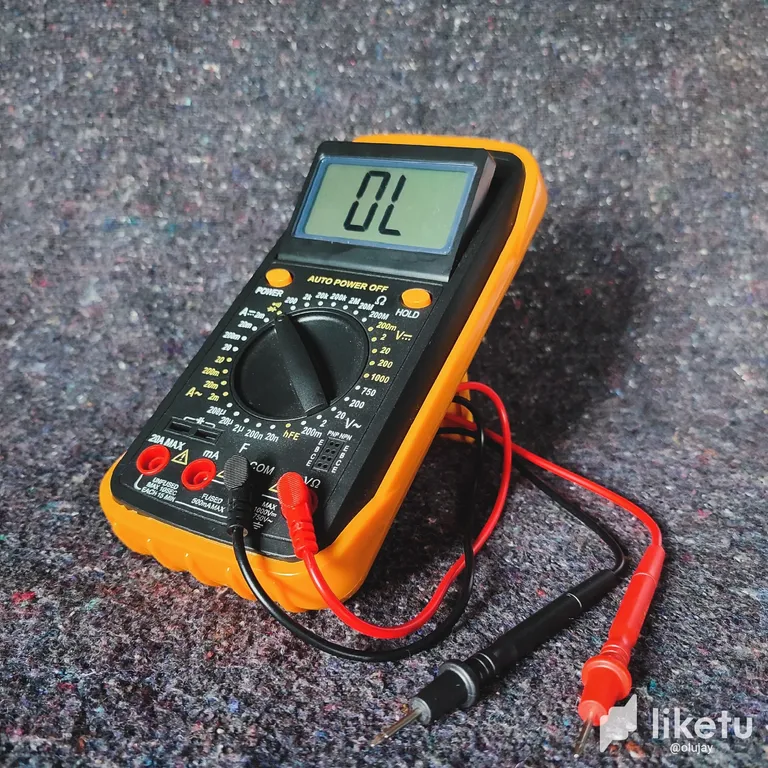
Okay, it's clearly not a toy, as this is for work and not for fun. I consider it the most useful battery-operated device I own. And it does a lot to keep me knowledgeable about the parameters of electrical systems when I am working.
Uhm, but what is it, exactly?
Basically, it is a digital multimeter. It is used for observing things like current and voltage. And I use it to, you know, "know what I am doing." I got this one, my first one, not too long ago. I would usually find one at work (an automation academy) or in the school's laboratory, so I never thought to own one. But then, troubleshooting electrical problems can be tedious at home without one, so that's why I got it. Take the following scenario as an example:
A problem arose recently, and it helped me solve it quickly and efficiently. Our new wired microphones in church were behaving abnormally. We had been using wireless mics, and so we never had to deal with this kind of problem until now.
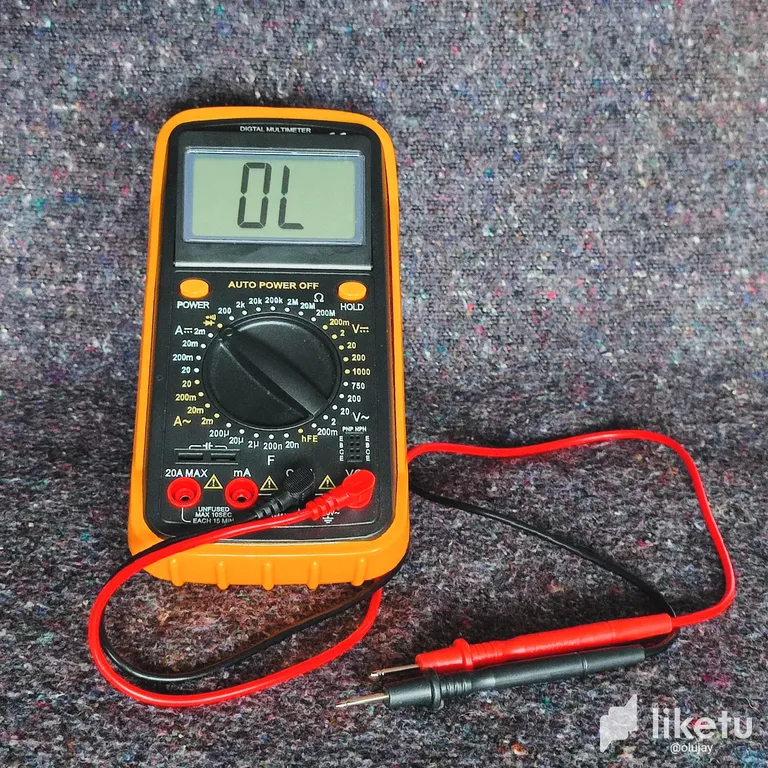
The new microphones were just not sounding right. They sounded horrible and weren't loud enough. I initially thought we had been ripped off our money and handed poor-quality mics, but then they did sound right when I checked them out at the store. My instincts told me it probably had something to do with the connections.
We weren't using the actual cables that came with the microphones, as they were short, and we had new cables made for them. That's where the problem was—with the new cables. But I still didn't know what to do because it seemed like they were connected correctly; the terminals were connected correctly and soldered correctly.
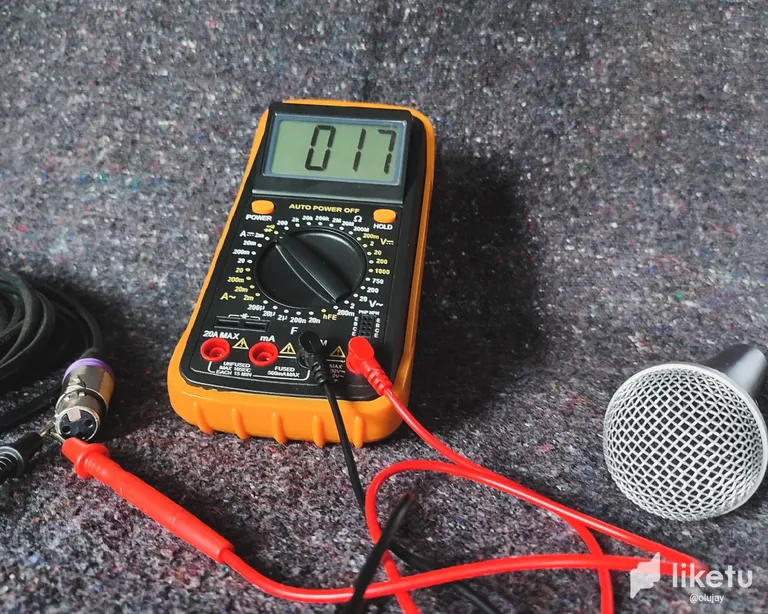
This is where the meter came in handy. I couldn't just disconnect and reconnect the internal wires. I didn't have my soldering iron around to join the wires back to the terminals, which would make everything tedious.
With this meter, I was able to test for short-circuits by checking for continuity along the terminals of the cables. Short-circuits are like having black and red wires connected somewhere; we know that's wrong. With it, too, I checked for the resistances of the cables to know if the cables were actually solid enough to carry the required current.
From one test to another, I figured that the cables weren't bad after all. It was the mixer—where all the signals from the instruments go before coming out through the loudspeakers, like the guitar, microphones, and piano. The mixer has some internal issues with its earthing. Earthing is actually some sort of wiring to the earth that prevents electrocution.
Finding out what the problem was, I just disconnected the earth wiring from the cables—because I found out the original cables (that weren't long enough) didn't have theirs connected, and that's why the microphones worked fine when I tested them at the store.
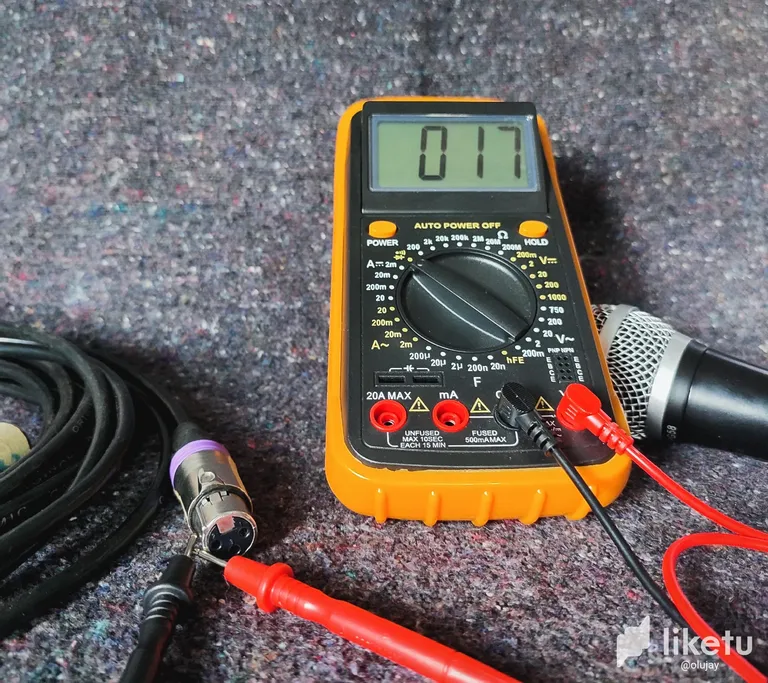
There are many more applications and uses for this multimeter. It could be troubleshooting issues on my guitar, short-circuits in the house (especially when wires burn), or regularly checking that the mains voltage in the house isn't way off the standard 220 volts.
As a newly inducted graduate member of the Nigerian Society of Engineers, it only makes sense to have certain tools around. If you'd like to know about my recent induction, you can find it here.
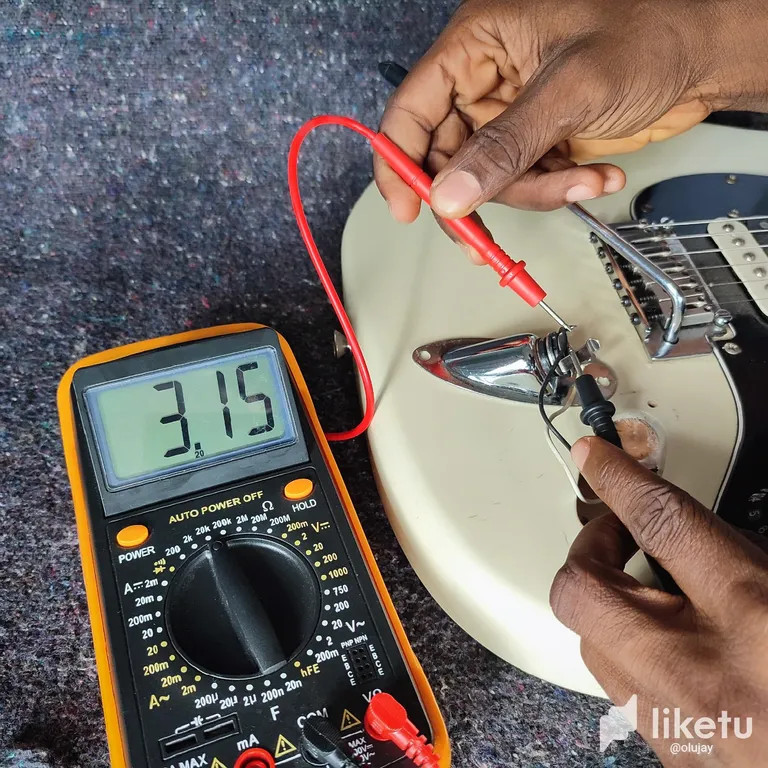
So, that's it: my most useful battery-operated device, inspired by the #weekend-engagement topic by galenkp. Learn more about it in this post...
...shot on Xiaomi Redmi Note 10 Pro
For the best experience view this post on Liketu
I think this device is so important to have in every household. I'm familiar with this coz my dad also own one...
I think it's important to have it around, too. Is you dad an engineer?
Disarming is spoiled, but it is also learned. This device is very useful, we have one at home, knowing where there is current, where there is not and what the voltage is is very important to solve problems of an electrical nature. Greetings.
Oh, do you use it yourself? I am curious if you are an expert yourself. Greetings.
At home we have a very similar one, I think it's the same one, my husband uses it a lot, because he is like you, a child who wanted to take everything apart, and now he likes to fix everything he can.
😅
I believe your husband and I are one and the same in that regard, then. It is most likely the one if you recognize it.
I guess it's a good thing he is like that, too. It kind of keeps away handymen from taking too much money for services.
Thank you for the heads up , I usually see it around the electrician ,but atleast I know what it does now
Yeah, you are welcome. Thanks for reading.
I am familiar with this tool, especially for electricians, but my brother, who is a computer technician, also used it a lot and it is very useful. Really excellent!
Regards @olujay ✨
It must have helped him a lot with his work, especially as a computer technician. I wonder if your brother is here on Hive as well.
Thank you for reading!
No, he's not here, he works most of the day.
Of my family only I am here😊
Oh, that's nice. Thank you for coming around.
Thanks to you!
That's indeed a great tool to have @olujay. It's great that you've grown to nurture your childhood curiosity. Your multimeter looks fancy it has an auto power off feature. It is easy to forget to switch them off after use.
Were the earthing issues specifically from the mixer or maybe they resulted from a ground loop when connecting a grounded microphone?
Did you end up with a setup of an ungrounded microphone that connects to a grounded mixer for the microphone to work properly?
Yes, it has an auto power-off feature, which helps to conserve the battery when I forget to turn it off. Pretty cool.
Actually, the mixer and its earthing was a guess. I figured the problem should be around there, and I sure didn't want to go into it. I am not an expert in that area of electronics. Somehow, the thing just works better without the grounding.
I see you do have your background in electrical and electronics. Did you study that or something?
Just today I was in conversation with my best friend and I was telling her that I want to learn again how to use the multimeter, since the last time I used one was when I was in high school (12 years ago XD). now that I'm getting interested in getting those skills back, I'm planning to buy one, and also a soldering iron.
Oh, wow. Now I'm curious what you studied in school. Is it engineering?
I only recently graduated from school, and that's why the skills are fresh in my head.
I studied electronics in high school, and I had to work with modules, wave amplifiers, voltmeters, and more stuff that I can't remember now. However, when I went to college I studied English. Still, I kept some skills from my time in high school.
Fascinating! But I am surprised you did that much in high school alone. How come you went all the way to English? Was it passion?
Yes. But it is not how you are imagining. I'm from Latin America and I speak Spanish. I always wanted to learn English because I'm in love with this language, so when I went to college I got my major in English teaching. Now I can teach other people.
Oh, wow. That's really cool. I love the language Spanish, actually. I love your kind of music too.
I am guessing you finished from the university many many years ago and are not married.
I finished the university four years ago, and yup, not married yet hahahaha.